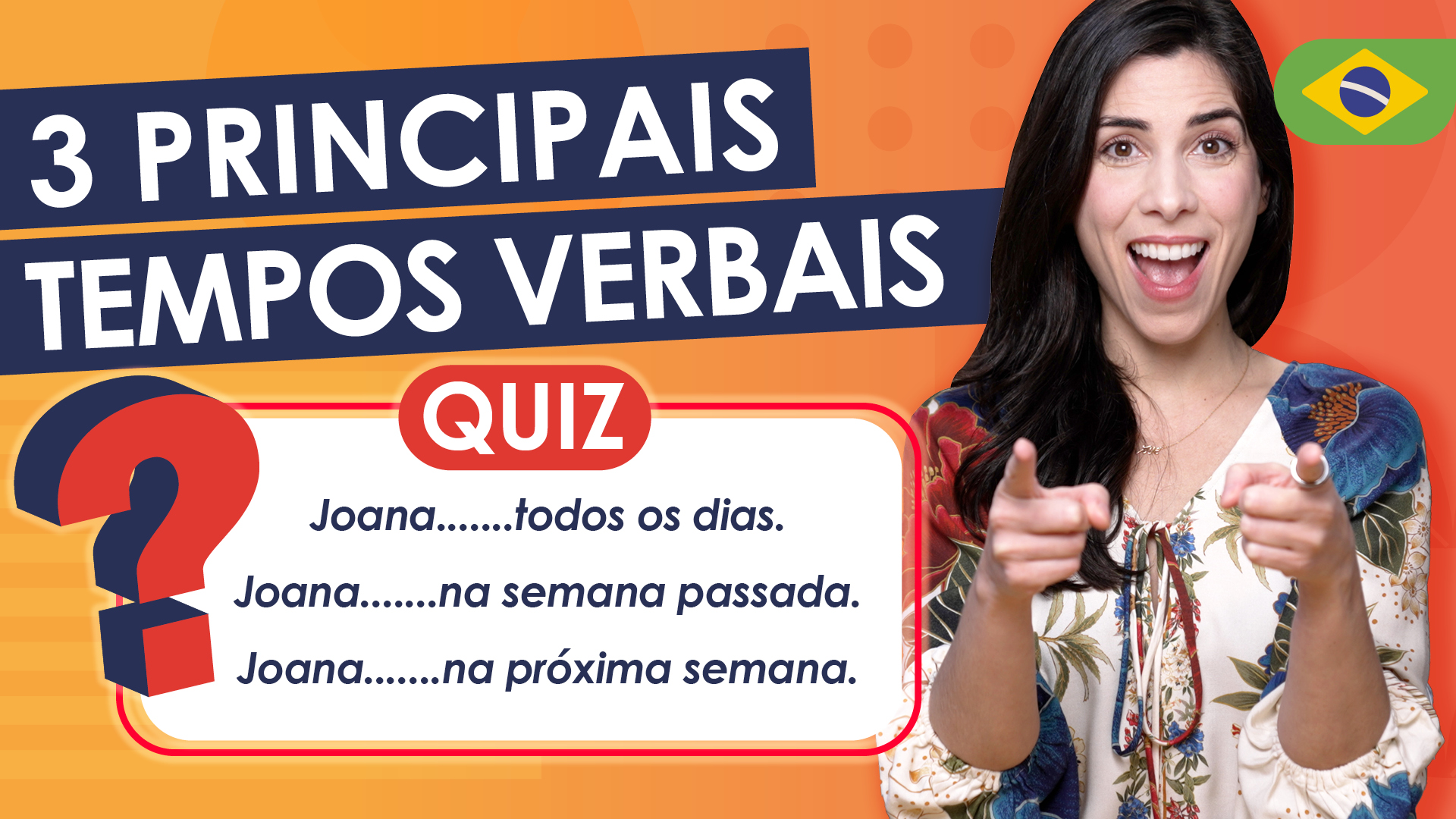This lesson includes a free PDF with exercises. Fill out the form below to download your worksheet.
How to be polite in Brazilian Portuguese
Olá, queridos alunos! (Hello, dear students!)
In this lesson, you’re going to learn how to speak Portuguese politely. After all, you don’t want to be rude to Brazilians when you’re in Brazil, right?
Of course, the most important thing is always to use the magic words: “por favor” (please), “obrigado” (thank you), “de nada” (you’re welcome), “com licença” (excuse me), and others.
However, there are many other ways to express politeness in Portuguese. Tone of voice and body language are very important. Naturally, in more formal situations, you should be more polite than in informal ones.
Teaching polite language for use all over Brazil is very difficult because the concept of politeness varies a lot from one place to another.
For example, in the Northeast, at least in the city where I was born, younger people should use the formal pronouns “senhor” (sir) and “senhora” (ma’am) when addressing an older person. In the South and Southeast, this is less common. Some people even feel offended if you call them sir or ma’am.
However, I think it’s better to be more polite than necessary rather than the opposite. If you’re too polite, Brazilians might think you’re being a little formal, but that’s not a serious problem. On the other hand, if you’re too direct, people might think you’re being rude.
That’s why I highly recommend using the conditional tense in Portuguese (futuro do pretérito) to make your language more polite and ensure that you come across as a polite person in all situations.
Below, you’ll find some examples in different contexts. The verb forms for this tense are listed at the end of the lesson.
Futuro do Pretérito (Condicional)
See examples below of direct language, using the imperative, and a more polite form using the conditional. Notice that the option with the verb “poder” (Could you…) adds even more distance and sounds even more polite.
Linguagem direta: Me ajuda com isso. (Help me with this.)
Linguagem mais educada: Você me ajudaria com isso, por favor? (Would you help me with this, please?)
Linguagem mais educada: Você poderia me ajudar com isso, por favor? (Could you help me with this, please?)
Linguagem direta: Me traz um copo d’água. (Bring me a glass of water.)
Linguagem mais educada: Você me traria um copo d’água, por favor? (Would you bring me a glass of water, please?)
Linguagem mais educada: Você poderia me trazer um copo d’água, por favor? (Could you bring me a glass of water, please?)
Linguagem direta: Fecha a porta. (Close the door.)
Linguagem mais educada: Você fecharia a porta, por favor? (Would you close the door, please?)
Linguagem mais educada: Você poderia fechar a porta, por favor? (Could you close the door, please?)
Linguagem direta: Onde tem uma farmácia? (Where can I find a pharmacy?)
Linguagem mais educada: Você saberia me dizer onde tem uma farmácia? (Would you know where I can find a pharmacy?)
Linguagem mais educada: Você poderia me dizer onde tem uma farmácia? (Could you tell me where I can find a pharmacy?)
Linguagem direta: Fala mais devagar. (Speak more slowly.)
Linguagem mais educada: Você falaria mais devagar, por favor? (Would you speak more slowly, please?)
Linguagem mais educada: Você poderia falar mais devagar, por favor? (Could you speak more slowly, please?)
Linguagem direta: Eu quero um café. (I want a coffee.)
Linguagem mais educada: Eu gostaria de um café, por favor. (I’d like a coffee, please.)
Linguagem mais educada: Você poderia me trazer um café, por favor? (Could you bring me a coffee, please?)
Linguagem direta: Me dá o cardápio. (Give me the menu.)
Linguagem mais educada: Você me daria o cardápio, por favor? (Would you give me the menu, please?)
Linguagem mais educada: Você poderia me dar o cardápio, por favor? (Could you give me the menu, please?)
Linguagem direta: Deixa eu passar. (Let me through.)
Linguagem mais educada: Com licença, você me deixaria passar, por favor? (Excuse me, would you let me through, please?)
Linguagem mais educada: Você poderia me deixar passar, por favor? (Could you let me through, please?)
How to Conjugate Verbs in the Futuro do Pretérito (Condicional)
Verbos Regulares
All regular verbs ending in -ar, -er, and -ir follow the pattern below:
Falar (to speak)
Eu falaria (I would speak)
Ele/Ela/Você falaria (He/She/You would speak)
Nós falaríamos (We would speak)
Eles/Elas/Vocês falariam (They/You all would speak)
Comer (to eat)
Eu comeria (I would eat)
Ele/Ela/Você comeria (He/She/You would eat)
Nós comeríamos (We would eat)
Eles/Elas/Vocês comeriam (They/You all would eat)
Assistir (to watch)
Eu assistiria (I would watch)
Ele/Ela/Você assistiria (He/She/You would watch)
Nós assistiríamos (We would watch)
Eles/Elas/Vocês assistiriam (They/You all would watch)
Verbos Irregulares
There are only 3 irregular verbs in the conditional tense in Portuguese: dizer (to say), fazer (to do/make), and trazer (to bring).
Dizer (to say)
Eu diria (I would say)
Ele/Ela/Você diria (He/She/You would say)
Nós diríamos (We would say)
Eles/Elas/Vocês diriam (They/You all would say)
Fazer (to do/make)
Eu faria (I would do/make)
Ele/Ela/Você faria (He/She/You would do/make)
Nós faríamos (We would do/make)
Eles/Elas/Vocês fariam (They/You all would do/make)
Trazer (to bring)
Eu traria (I would bring)
Ele/Ela/Você traria (He/She/You would bring)
Nós traríamos (We would bring)
Eles/Elas/Vocês trariam (They/You all would bring)
Free PDF!
This lesson includes a free PDF with exercises. Fill out the form below to download your worksheet.
Online Brazilian Portuguese Courses
If you enjoyed this lesson, you’ll love our courses! At Speaking Brazilian School, we offer digital courses, small group classes, and private lessons. Click here to learn more about our Brazilian Portuguese online classes.
Até a próxima!
Virginia & Speaking Brazilian Team


